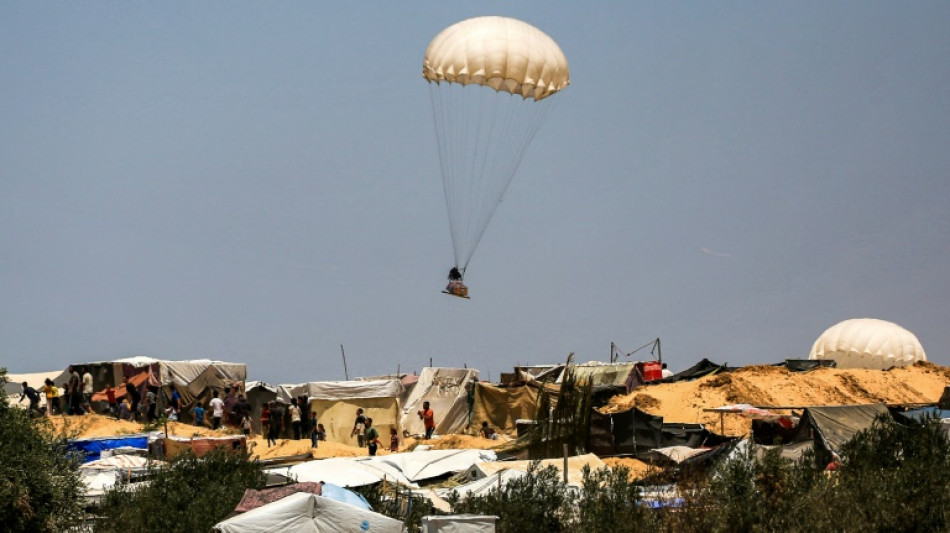
-
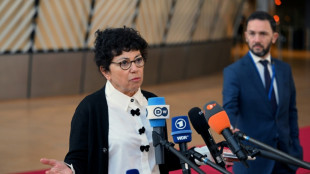 EU in last-ditch push to seal climate targets before COP30
EU in last-ditch push to seal climate targets before COP30
-
Finnish ex-PM Marin says her female cabinet faced torrent of sexism

-
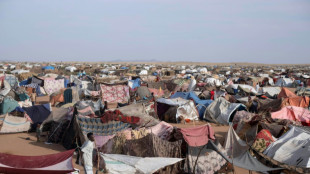 Sudan army-backed council to meet on US truce proposal: govt source
Sudan army-backed council to meet on US truce proposal: govt source
-
BP profit surges despite lower oil prices

-
 Shein vows to cooperate with France in childlike sex doll probe
Shein vows to cooperate with France in childlike sex doll probe
-
National hero proposal for Indonesia's Suharto sparks backlash

-
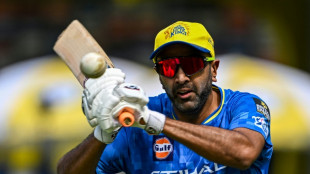 Indian great Ashwin out of Australia's BBL after knee surgery
Indian great Ashwin out of Australia's BBL after knee surgery
-
Indian Sikh pilgrims enter Pakistan, first major crossing since May conflict: AFP
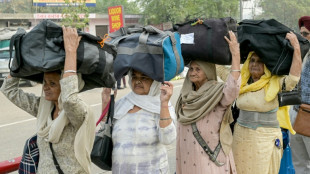
-
 Asian markets slip as traders eye tech rally, US rate outlook
Asian markets slip as traders eye tech rally, US rate outlook
-
Nintendo hikes Switch 2 annual unit sales target

-
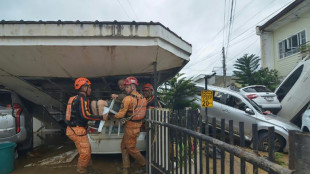 Typhoon flooding kills 5, strands thousands in central Philippines
Typhoon flooding kills 5, strands thousands in central Philippines
-
Jobe Bellingham finding his feet as Dortmund head to City

-
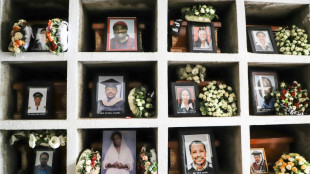 US civil trial to hear opening arguments on Boeing MAX crash
US civil trial to hear opening arguments on Boeing MAX crash
-
Jamie Melham on Half Yours only second woman to win Melbourne Cup

-
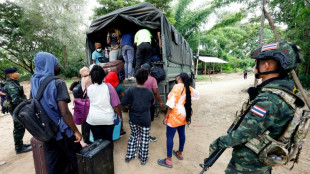 Myanmar scam hub sweep triggers fraudster recruitment rush
Myanmar scam hub sweep triggers fraudster recruitment rush
-
Biggest emitter, record renewables: China's climate scorecard

-
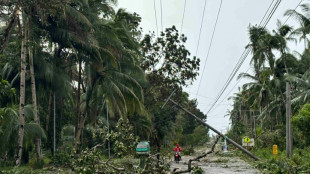 Floods strand people on roofs as typhoon pounds Philippines
Floods strand people on roofs as typhoon pounds Philippines
-
Asian markets swing as trades eye tech rally, US rate outlook

-
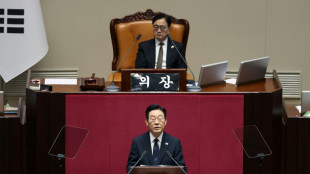 South Korea to triple AI spending, boost defence budget
South Korea to triple AI spending, boost defence budget
-
Trott to leave as Afghanistan coach after T20 World Cup

-
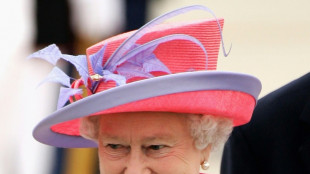 Late queen's fashion to go on show at Buckingham Palace
Late queen's fashion to go on show at Buckingham Palace
-
In Morocco, exiled Afghan women footballers find hope on the pitch
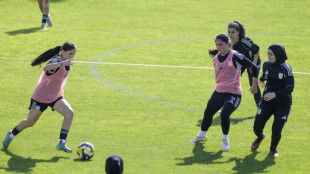
-
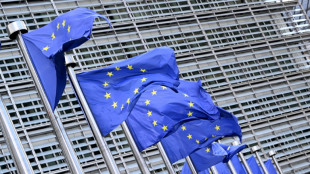 EU scrambles to seal climate deal ahead of COP30
EU scrambles to seal climate deal ahead of COP30
-
New Yorkers expected to pick leftist Mamdani in stunning election
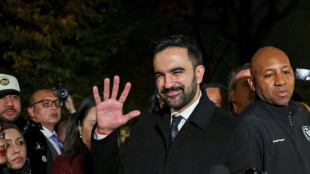
-
 Pining for Pinochet: how crime fanned nostalgia for Chile's dictator
Pining for Pinochet: how crime fanned nostalgia for Chile's dictator
-
Why an Amazon chef said no to a vegan dinner for Prince William event
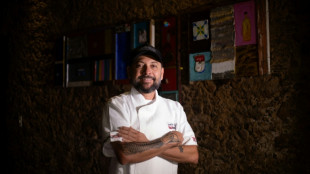
-
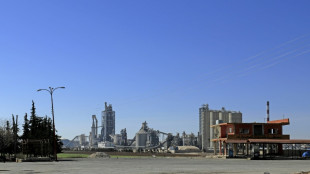 Cement maker Lafarge on trial in France on charges of funding jihadists
Cement maker Lafarge on trial in France on charges of funding jihadists
-
Worker dies after medieval tower partly collapses in Rome

-
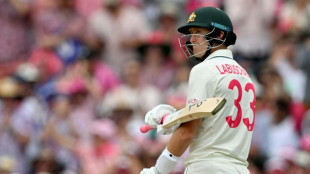 Run-machine Labuschagne in form of his life ahead of Ashes
Run-machine Labuschagne in form of his life ahead of Ashes
-
Prince William plays football, volleyball in Rio on climate trip
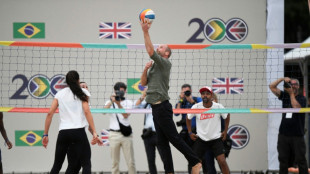
-
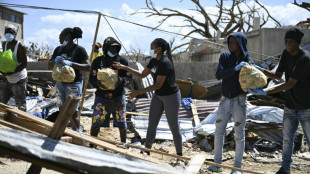 Jamaicans mobilize aid in aftermath of Melissa's wreckage
Jamaicans mobilize aid in aftermath of Melissa's wreckage
-
Starbucks cedes China control to Boyu Capital

-
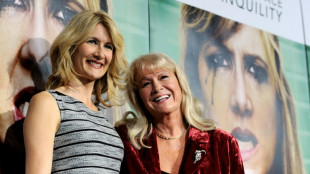 'Wild at Heart' actress Diane Ladd dies at 89
'Wild at Heart' actress Diane Ladd dies at 89
-
Xhaka lifts Sunderland into fourth after Everton draw

-
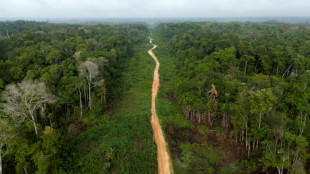 Brazil records biggest annual fall in emissions in 15 years: report
Brazil records biggest annual fall in emissions in 15 years: report
-
Victor Conte, mastermind of BALCO doping scandal, dead at 75: company
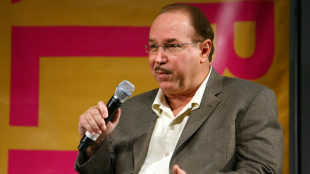
-
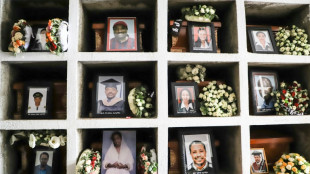 Trial opens in 1st US civil case on 2019 Boeing MAX crash
Trial opens in 1st US civil case on 2019 Boeing MAX crash
-
Barrett brothers out of All Blacks' clash with Scotland

-
 Medieval tower partially collapses in Rome, trapping worker
Medieval tower partially collapses in Rome, trapping worker
-
Arsenal's Arteta says injured Gyokeres out of Slavia Prague tie

-
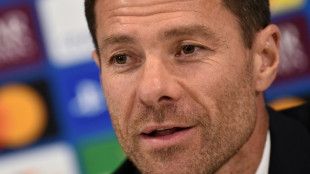 Alonso says 'quality' Wirtz helped get him Real Madrid job
Alonso says 'quality' Wirtz helped get him Real Madrid job
-
US Fed's Cook warns inflation to stay 'elevated' next year

-
 Blue heaven: huge crowds salute Los Angeles Dodgers in victory parade
Blue heaven: huge crowds salute Los Angeles Dodgers in victory parade
-
Dutch centrist Jetten clinches election win: final tally
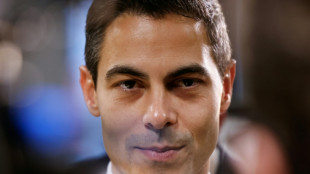
-
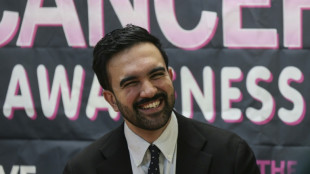 Mamdani extends olive branch to anxious NY business community
Mamdani extends olive branch to anxious NY business community
-
Sierra Leone chimpanzee sanctuary reopens after deforestation protest
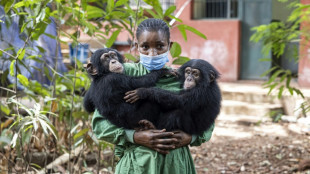
-
 Shein bans sex dolls after France outrage over 'childlike' ones
Shein bans sex dolls after France outrage over 'childlike' ones
-
England full-back Steward doubtful for Autumn rugby clash with Fiji

-
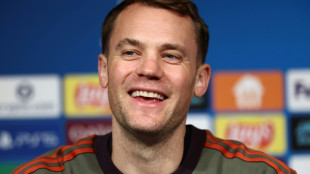 Bayern know how to 'hurt' PSG, says Neuer
Bayern know how to 'hurt' PSG, says Neuer
-
Rybakina downs Swiatek to reach WTA Finals last four


Some Gazans 'drinking sewage water': WHO regional chief
Some Gazans are now reduced to drinking sewage water and eating animal feed, the WHO's regional chief said Tuesday, pleading for increased aid access immediately to the besieged territory.
Hanan Balkhy, the World Health Organization's Eastern Mediterranean regional director, also warned that the war between Israel and Hamas had a knock-on impact on healthcare across the wider region.
And the impact on children will have severe lasting effects, the child health expert told AFP in an interview at the WHO headquarters in Geneva.
Inside Gaza, "there are people who are now eating animal food, eating grass, they're drinking sewage water," she said.
"Children are barely able to eat, while the trucks are standing outside of Rafah."
The bloodiest-ever Gaza war was sparked by Hamas's October 7 attack, which resulted in the deaths of 1,194 people, mostly civilians, according to an AFP tally based on Israeli official figures.
Israel's retaliatory bombardment and ground offensive have killed at least 36,655 people in Gaza, also mostly civilians, according to the Hamas-run territory's health ministry.
- 'Extremely complex traumas' -
The UN has long warned that famine is looming in Gaza, with 1.1 million people -- around half of the population -- facing catastrophic levels of food insecurity.
The UN humanitarian agency OCHA on Tuesday said access constraints "continue to undermine the safe delivery of life-saving humanitarian assistance throughout Gaza", and conditions "further deteriorated" in May.
A trickle of aid goes in mainly through the Kerem Shalom crossing with Israel.
The insecurity linked to the fighting and bombings, and roads often filled with debris, also hinders the distribution of aid.
Balkhy, who took office in February, said Gaza needed "peace, peace, peace", plus vastly increased aid-access by land.
After a recent visit to the Rafah crossing from Egypt into the southern Gaza Strip -- a vital conduit for aid that was closed by Israeli forces early last month -- she urged Israel to "open those borders".
Balkhy said Kerem Shalom was "not enough", and the frantic efforts at maritime corridors and air drops made little sense when far less costly and more effective land routes already existed and "the trucks are lined up" outside them.
Balkhy voiced particular frustration at the blocking of medical equipment deemed "dual use" -- items that Israel says could be used for military purposes.
"We're talking about ventilators, purification chemicals to clean water," the Saudi doctor said.
- Child mental health impact -
Balkhy stressed the dire needs of patients in Gaza, with as many as 11,000 critically ill and wounded people requiring medical evacuation.
"The patients that are coming out are showing some extremely complex traumas: compound fractures, multi-drug resistant organisms, very maimed children," she said.
"To rehabilitate people like this and treat them you need very complex health care," Balkhy said, emphasising the knock-on strain on fragile health systems in neighbouring host countries, notably Egypt.
Last week, WHO warned there has been an "abrupt halt" to medical evacuations since Israel launched its offensive in Rafah in early May, warning more people would die while waiting for care.
An infectious disease paediatrician, Balkhy spoke of the short- and long-term impacts of the conflict on children.
She said the war had had a devastating toll on basic public health measures, such as clean water, healthy food and routine immunisations, leaving children susceptible to measles, chicken pox, diarrhoea and respiratory illnesses.
"It's going to have a huge impact on mental health. It's going to cause huge post-traumatic stress syndromes," she warned.
"I think (for) children who have heard the fire and the destruction, and lived it, it's going to take a lot of effort to pull them out."
Regarding children rescued from the rubble, "I don't even know how you recover from that psychologically", she said.
As for the prospect of rebuilding Gaza's shattered health system one day, Balkhy said "the ambition from donors is high.
"But without peace it's impossible."
A.Zbinden--VB




